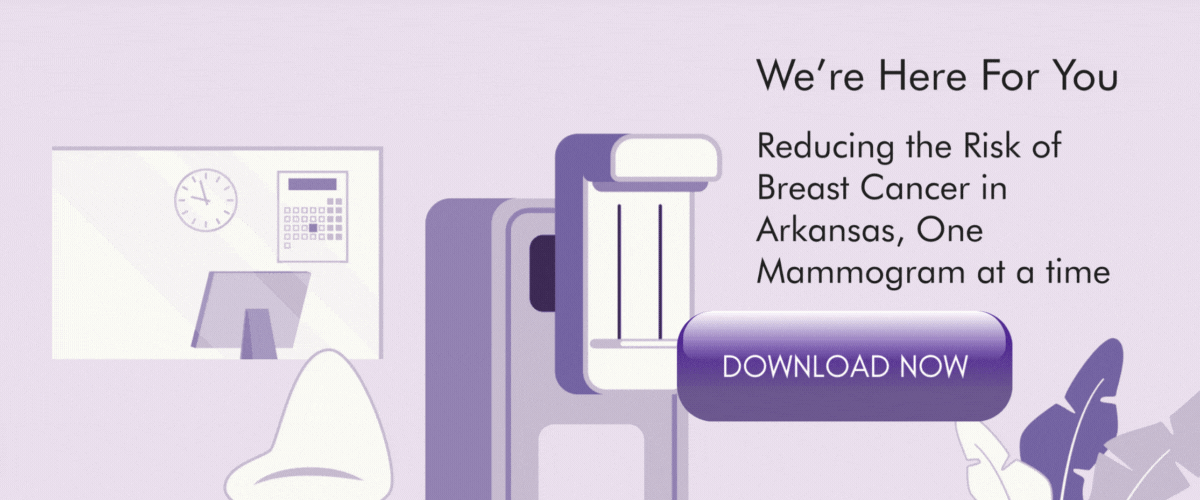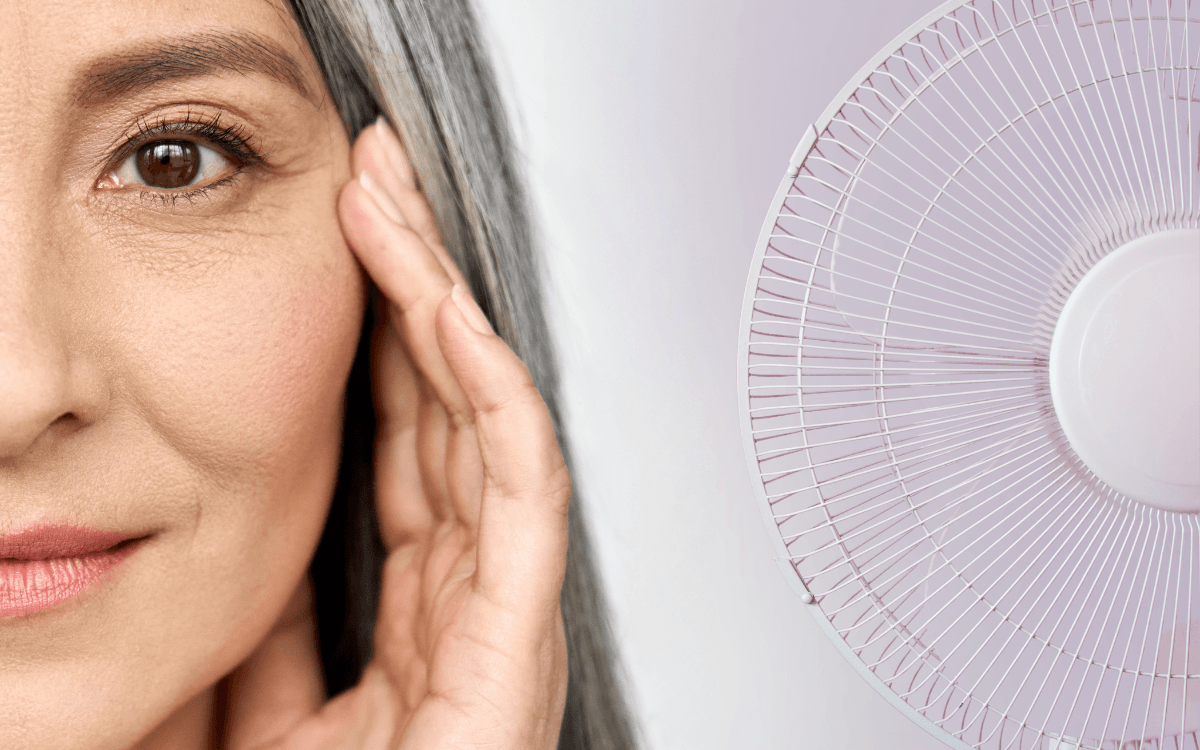Hot flashes are one of the most common menopause symptoms, affecting around 75% of women during the menopausal transition. These sudden feelings of intense heat, accompanied by sweating and a rapid heartbeat, can be debilitating to a woman’s quality of life. You’re not alone if you’re experiencing hot flashes and feeling like nothing is helping.
At The Woman’s Clinic, we understand the challenges of menopause symptoms like hot flashes, and we’re here to help. In this blog post, we’ll provide you with information on how to manage and cope with hot flashes, one of the most prominent menopause symptoms, so you can improve your overall quality of life.
At what Age Do Menopause Symptoms Start?
Menopause typically begins around the age of 50, but it can occur earlier or later. The age at which menopause begins can be influenced by several factors, including genetics, medical history, and lifestyle.
The most common symptoms of menopause include hot flashes, night sweats, vaginal dryness, and mood swings. Other symptoms can include sleep disturbances, weight gain, and decreased libido.
Age-related expectations:
- In their 40s: Some women may start experiencing symptoms of perimenopause, the transition period leading up to menopause. These can include irregular periods, hot flashes, and sleep disturbances.
- In their late 40s to early 50s: Perimenopause typically peaks during this time, and the symptoms become more frequent and intense. Some women may still have periods, but they become increasingly irregular.
- In their 50s: Menopause typically occurs around this age. It is officially diagnosed when a woman goes 12 months without a period. Symptoms of menopause, such as hot flashes, night sweats, and vaginal dryness, may continue, but they tend to decrease in frequency and intensity over time.
It’s important to note that every woman’s experience with menopause is unique and can vary greatly. Some women may have few or no symptoms, while others may experience significant discomfort. It’s always a good idea to talk to a healthcare professional about your individual experience and how to manage the symptoms if they are interfering with your quality of life.

What Are Hot Flashes and Why Do They Happen?
Hot flashes are a common menopause symptom experienced by many women. A hot flash is a sudden feeling of intense warmth or heat that spreads throughout the body, usually accompanied by sweating and a rapid heartbeat. The face, chest, and neck are the areas of the body that are most commonly affected. Hot flashes can last from a few minutes to several hours and occur anytime. They can be debilitating and can affect a woman’s quality of life.
Hot flashes occur as a result of hormonal changes that take place during menopause. As the ovaries stop producing estrogen, the body’s levels of this hormone drop. Estrogen plays an important role in regulating the body’s temperature, so the body’s thermostat can become imbalanced when levels drop.
It’s important to note that hot flashes are not just a symptom of menopause; they also may occur during perimenopause ( the period before menopause) and also in some medical conditions like breast cancer, hypothyroidism, or polycystic ovary syndrome (PCOS)
If you’re experiencing hot flashes, it’s important to talk to your doctor. They can help determine the cause of your hot flashes and recommend a treatment plan that’s right for you. With the right approach, it’s possible to manage hot flashes and improve your quality of life.
How To Manage Hot Flashes
Luckily, there are a variety of ways to manage hot flashes and reduce their frequency and severity. Here are some strategies that can help:
Lifestyle Changes:
One of the most effective ways to manage hot flashes is to make lifestyle changes. Maintaining a healthy weight, eating a balanced diet, and getting regular exercise can help reduce the frequency and severity of hot flashes. Avoiding triggers such as caffeine, alcohol, and spicy foods can also be helpful.
Hormone Therapy:
Hormone therapy (HT) is the most effective treatment for hot flashes. It replaces the estrogen that the body is no longer producing, which helps to balance out the body’s thermostat and reduces the frequency and severity of hot flashes. Hormone therapy can be administered as pills, patches, gels, or creams.
Medications:
Antidepressants and blood pressure drugs can also be used to control hot flashes. Antidepressants, specifically selective serotonin reuptake inhibitors (SSRIs) and serotonin-norepinephrine reuptake inhibitors (SNRIs), have been found to be effective in reducing hot flashes.
Over-the-counter Menopause supplements
There are several over-the-counter supplements that may be helpful for managing menopause symptoms. These include:
- Black cohosh: This herb has been traditionally used to help with hot flashes and other menopause symptoms.
- Soy isoflavones: These compounds found in soybeans may help reduce hot flashes and improve bone health.
- Red clover: This herb contains isoflavones and may help reduce hot flashes and improve bone health.
- Vitamin E: This vitamin may help reduce hot flashes and improve vaginal dryness.
- Wild yam: Some women take wild yam to help with hot flashes and other menopause symptoms, but there is not enough scientific evidence to support its effectiveness.
- Omega-3 fatty acids: This supplement may help with mood swings and depression.
It’s important to note that the effectiveness of these supplements may vary from person to person, and not all of them have been rigorously studied. Before taking any over-the-counter supplements, it’s always a good idea to talk to a healthcare professional to ensure that it’s safe for you to take and that it does not interact with other medication you may be taking. Also, it’s important to note that over-the-counter supplements are not regulated by the Food and Drug Administration as stringently as prescription medications, so it’s important to purchase supplements from reputable manufacturers.
There are also supplements and vitamins available from Amazon strictly produced for menopausal women. These include Amberen, Estroven Complete Multi-Symptom, Estroven Weight Management for Menopause Relief, Nutrafol Women’s Balance Menopause Supplement.
Alternative Therapies:
Some alternative therapies, such as acupuncture and herbal supplements, have been found to be effective in reducing hot flashes. Yoga and other forms of relaxation therapy can also be helpful in managing stress and anxiety, which can be triggers for hot flashes.
Mindfulness:
Mindfulness can be helpful in managing hot flashes by teaching you how to stay calm and focused in the present moment. This practice can help you manage hot flashes in a more effective way by reducing your stress and anxiety levels.
It’s important to note that every woman experiences menopause symptoms differently, and what works for one woman might not work for another. It’s always best to consult your healthcare provider to determine the best course of treatment. Our team of experts at The Woman’s Clinic can help you find the best way to manage your menopause symptoms, including hot flashes.
Tips For Preventing Hot Flashes
At The Woman’s Clinic, we know that hot flashes can be a nuisance during menopause, but there are ways to prevent them. Here are some tips to help prevent hot flashes:
Avoid Triggers:
Some things like caffeine, alcohol, and spicy foods can trigger hot flashes, so it’s best to avoid them.
Stay Cool:
Keeping your environment cool, wearing lightweight clothing, and using fans or air conditioning can help keep hot flashes at bay.
Maintain a Healthy Lifestyle:
Regular exercise, a balanced diet, and stress management can help prevent hot flashes and manage other menopause symptoms.
Consult With a Doctor:
Hormonal changes during menopause can lead to hot flashes; if you’re experiencing it frequently and can’t prevent it with lifestyle changes, consulting your doctor might be necessary, as some medications can help prevent them.
Remember, every woman’s experience of menopause is unique, and what works for one person may not work for another. At The Woman’s Clinic, our team of experts is here to help you find the best strategies for preventing hot flashes and improving your overall quality of life during menopause symptoms.
Conclusion
In conclusion, hot flashes are a common and often debilitating menopause symptom. Still, there are ways to manage them, from making lifestyle changes to exploring hormone therapy options, taking medication, and trying alternative therapies such as acupuncture, yoga, and mindfulness. At The Woman’s Clinic, our team of experts is here to help you find the best strategies for managing your hot flashes and other menopause symptoms. It’s important to remember that every woman’s experience of menopause is unique, and what works for one woman may not work for another. Don’t let hot flashes take control of your life, take action and take control of your menopause journey.

The Woman’s Clinic is a participant in the Amazon Services LLC Associates Program, an affiliate advertising program designed to provide sites with a means to earn advertising fees by advertising and linking to Amazon.com based on our patient’s needs and desires.

